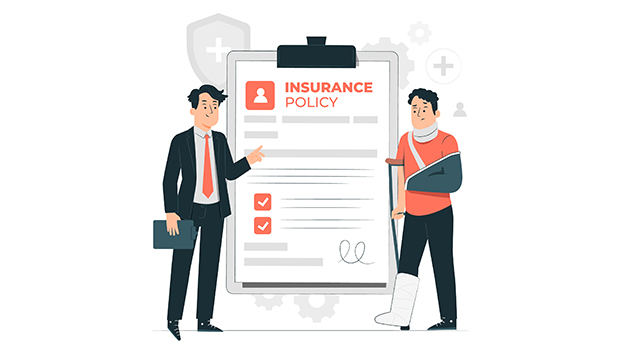Health insurance is a critical component of personal financial planning, and understanding the claim process is crucial for policyholders. There are two main ways to claim your health insurance benefits: cashless and reimbursement claims. Each of these processes has its own set of advantages and disadvantages, and selecting the right one for your needs can be vital. In this article, we’ll explore the differences between these two claim processes, their pros and cons, and help you decide which one is better for you.
1. Introduction to Health Insurance Claims
Health insurance claims allow policyholders to seek compensation for medical expenses incurred due to illnesses or injuries. When the need arises, there are two ways to submit a claim: cashless and reimbursement. Both processes serve the same purpose but function quite differently. Let’s break down each one and explore how they impact your overall healthcare experience.
2. Understanding Cashless Health Insurance Claims
A cashless claim allows you to receive treatment at a hospital without having to pay upfront for medical expenses. Here’s how it works: when you are admitted to a network hospital (i.e., a hospital that has partnered with your insurance provider), you present your insurance details, and the insurer directly settles the bill with the hospital.
The cashless claim process is efficient because the insurance company manages payments directly with the hospital, alleviating the financial burden on the policyholder. However, you must ensure that the hospital you choose is part of your insurer’s network.
3. Understanding Reimbursement Health Insurance Claims
In contrast, a reimbursement claim involves paying for your medical treatment out of pocket, followed by submitting a claim to your insurance company to get reimbursed for the expenses. This process involves a bit more paperwork, as you must provide receipts, medical reports, and other documents to substantiate your claim.
Reimbursement claims offer more flexibility as they allow you to choose any hospital for treatment, even if it’s not part of your insurer’s network. However, the time taken to process reimbursement claims is longer compared to cashless claims.
4. Key Differences Between Cashless and Reimbursement Claims
The key differences between cashless and reimbursement claims lie in how payments are processed, the timeline for claim settlement, and hospital choices. Cashless claims are settled between the insurer and hospital directly, whereas reimbursement claims require the policyholder to handle payments initially and file for reimbursement later. Additionally, cashless claims are limited to network hospitals, while reimbursement claims offer greater hospital flexibility.
5. Pros of Cashless Health Insurance Claims
- Speed and Convenience: The most significant advantage of cashless claims is the ease and speed of the process. Since you don’t need to worry about paying medical bills upfront, the process becomes stress-free.
- Ideal for Emergencies: In cases of medical emergencies, cashless claims are a lifesaver as they prevent you from scrambling to arrange funds.
- Minimal Documentation: With pre-approved treatment at network hospitals, you often need fewer documents compared to reimbursement claims.
6. Cons of Cashless Health Insurance Claims
- Limited to Network Hospitals: One of the biggest drawbacks of cashless claims is that you are restricted to hospitals within your insurer’s network. If the hospital of your choice is not part of the network, you cannot avail of cashless benefits.
- Pre-authorization Requirement: Before starting treatment, the hospital must get approval from the insurer, which may cause delays, especially in emergency cases.
7. Pros of Reimbursement Health Insurance Claims
- Freedom to Choose Any Hospital: You can get treated at any hospital, even those outside the network, offering more flexibility.
- No Restrictions on Treatment: Since you’re paying the bill yourself and later submitting it for reimbursement, you have fewer limitations regarding the hospital’s treatment protocols.
8. Cons of Reimbursement Health Insurance Claims
- Upfront Payment Required: The most notable downside is that you must pay all the medical bills yourself initially.
- Time-Consuming Process: Reimbursement claims take longer to process due to the verification of documents and approval by the insurance company.
9. Financial Impact of Both Claim Processes
Both cashless and reimbursement claims impact policyholders financially in different ways. With cashless claims, you avoid the immediate financial burden of paying medical bills upfront. However, reimbursement claims require you to pay out-of-pocket, which might strain your finances until the insurer reimburses the costs. For those without liquid cash available, cashless claims can be more practical.
10. Which Process is Better for Emergencies?
When dealing with medical emergencies, cashless claims are far superior. They minimize stress, provide quick access to medical care, and remove the need for arranging funds upfront. On the other hand, reimbursement claims can be cumbersome during emergencies due to the immediate financial requirement.
11. Cashless Health Insurance Claims and Hospital Networks
A crucial aspect of cashless claims is understanding hospital networks. Each insurance provider has a network of hospitals with which they have agreements to offer cashless services. Before getting admitted, it’s essential to check whether the hospital is part of your insurer’s network.
12. How Reimbursement Claims Work with Non-Network Hospitals
Reimbursement claims provide flexibility, especially when you’re treated at a non-network hospital. Although you can still file a claim, the process requires more documentation, such as medical reports, bills, and prescriptions, and might take longer to get approved.
13. Common Challenges with Cashless Claims
Even though cashless claims are convenient, they are not without challenges. The most common issues include delays in receiving pre-authorization from the insurer, unavailability of certain treatments, and the limited number of hospitals in the insurer’s network.
14. Common Challenges with Reimbursement Claims
Reimbursement claims can be challenging due to the extensive paperwork and the time required to process the claim. Common problems include incomplete documentation, issues with bill verification, and claim rejections due to technical errors.
15. How to Choose Between Cashless and Reimbursement
Choosing between cashless and reimbursement claims depends on several factors such as the type of treatment, location of the hospital, and the urgency of the situation. If your hospital is part of your insurer’s network, a cashless claim is the better option. However, if you prefer more flexibility in choosing hospitals or are in an area where network hospitals are unavailable, reimbursement claims offer more freedom.
16. Conclusion: Cashless vs. Reimbursement
Both cashless and reimbursement claim processes have their pros and cons. Cashless claims are faster, more convenient, and suitable for emergencies, while reimbursement claims provide more hospital choices but involve a longer process. Ultimately, the better option depends on your circumstances, including the hospital’s network status, the urgency of care, and your financial situation.
17. Frequently Asked Questions (FAQs)
- What are the main differences between cashless and reimbursement?
Cashless claims involve direct settlement between the insurer and hospital, while reimbursement claims require upfront payment followed by reimbursement. - Can I switch from cashless to reimbursement?
Yes, in some cases, if your hospital is not in the network or if the cashless claim is denied, you can file a reimbursement claim instead. - Which claim process is faster?
Cashless claims are generally faster since the insurer pays the hospital directly. - Are cashless claims available for all treatments?
No, some treatments may require additional pre-authorization, or may not be available under a cashless claim. - What happens if my claim is rejected?
If your claim is rejected, you can appeal the decision or correct the documentation errors and resubmit it. - How do I ensure my reimbursement claim is approved?
Ensure that all necessary documents are submitted and that you meet the claim criteria set by your insurance provider.

